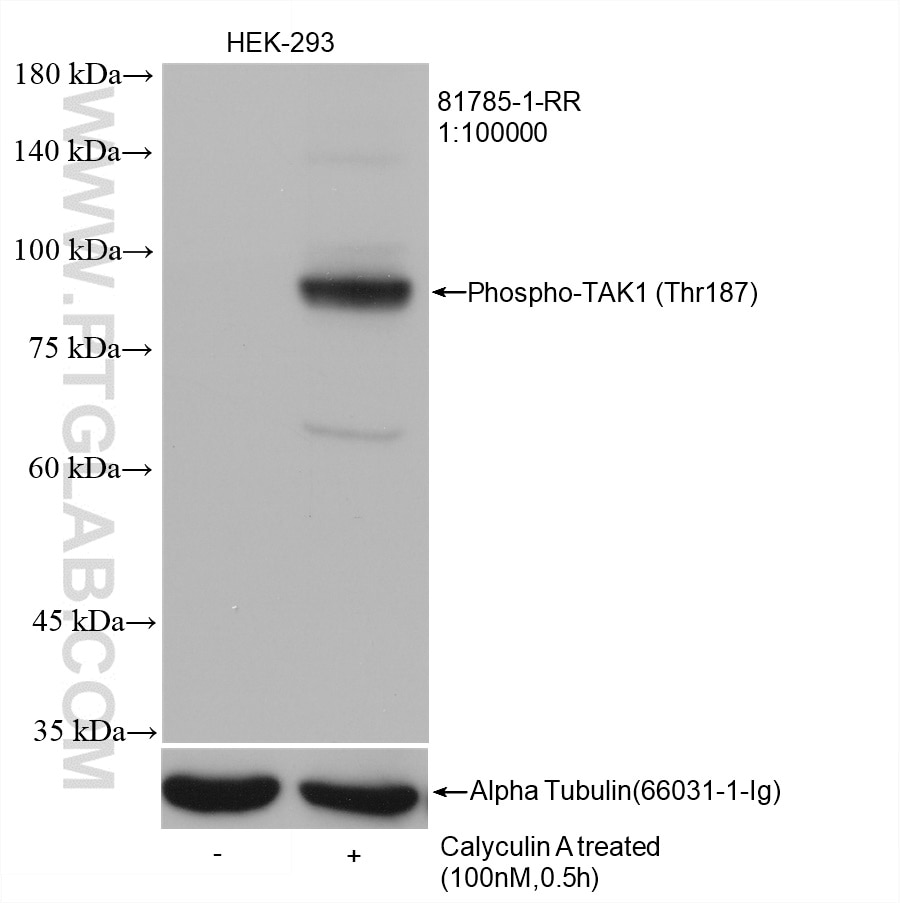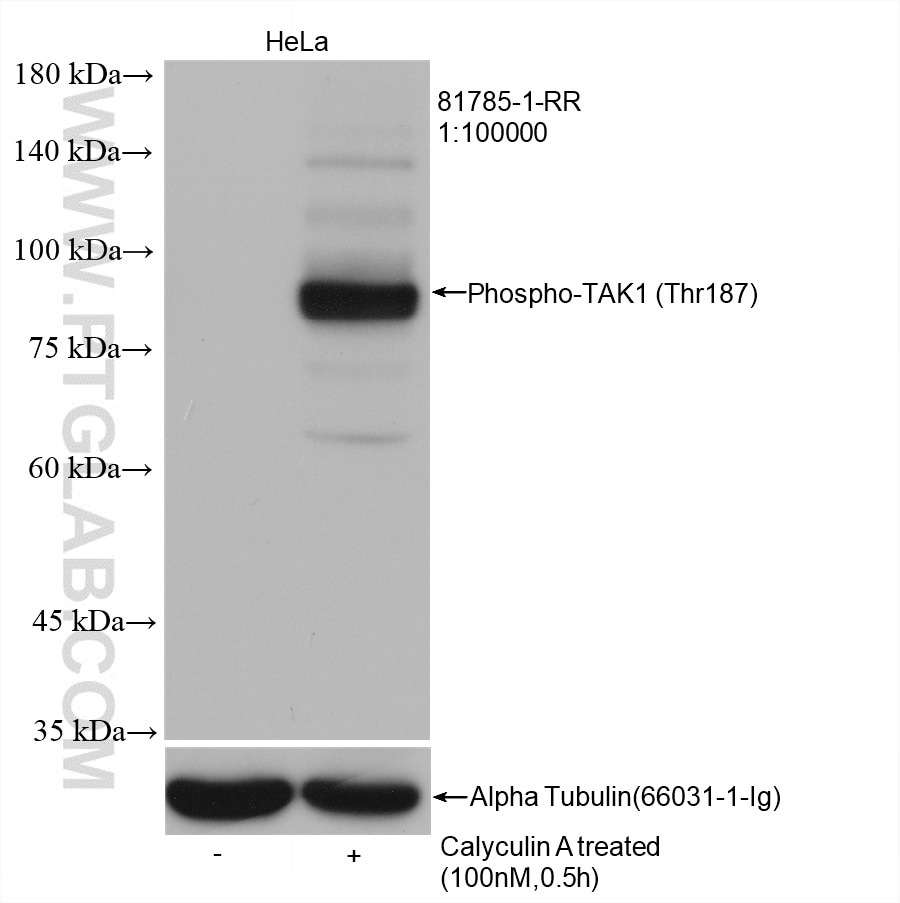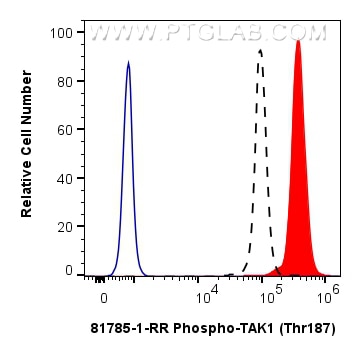Tested Applications
| Positive WB detected in | Calyculin A treated HEK-293 cells, Calyculin A treated HeLa cells |
| Positive FC (Intra) detected in | Calyculin A treated HEK-293 cells |
Recommended dilution
| Application | Dilution |
|---|---|
| Western Blot (WB) | WB : 1:20000-1:100000 |
| Flow Cytometry (FC) (INTRA) | FC (INTRA) : 0.13 ug per 10^6 cells in a 100 µl suspension |
| It is recommended that this reagent should be titrated in each testing system to obtain optimal results. | |
| Sample-dependent, Check data in validation data gallery. | |
Product Information
81785-1-RR targets Phospho-TAK1 (Thr187) in WB, FC (Intra), ELISA applications and shows reactivity with human samples.
| Tested Reactivity | human |
| Host / Isotype | Rabbit / IgG |
| Class | Recombinant |
| Type | Antibody |
| Immunogen |
Peptide Predict reactive species |
| Full Name | mitogen-activated protein kinase kinase kinase 7 |
| Calculated Molecular Weight | 579 aa, 64 kDa |
| Observed Molecular Weight | 75-85 kDa |
| GenBank Accession Number | BC017715 |
| Gene Symbol | TAK1 |
| Gene ID (NCBI) | 6885 |
| RRID | AB_3085357 |
| Conjugate | Unconjugated |
| Form | Liquid |
| Purification Method | Protein A purification |
| UNIPROT ID | O43318 |
| Storage Buffer | PBS with 0.02% sodium azide and 50% glycerol, pH 7.3. |
| Storage Conditions | Store at -20°C. Stable for one year after shipment. Aliquoting is unnecessary for -20oC storage. 20ul sizes contain 0.1% BSA. |
Background Information
MAP3K7(Mitogen-activated protein kinase kinase kinase 7) is also named TAK1 and belongs to the MAP kinase kinase kinase subfamily. It plays an important role in the cascades of cellular responses evoked by changes in the environment. It has been linked to interleukin-1 receptor and tumor necrosis factor receptor signaling (PMID: 16186825). It has 4 isoforms (53-55 kDa; 64-70 kDa and 75-80 kDa)produced by alternative splicing.
Protocols
| Product Specific Protocols | |
|---|---|
| WB protocol for Phospho-TAK1 (Thr187) antibody 81785-1-RR | Download protocol |
| Standard Protocols | |
|---|---|
| Click here to view our Standard Protocols |








